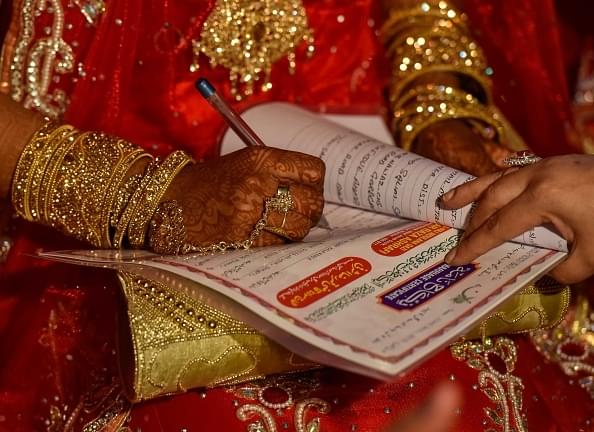Insta
Marriage Between Muslim Man, Hindu Woman Is ‘Irregular’ As Per Islamic Law, But Child Born Of Union Legitimate: SC
Swarajya Staff
Jan 23, 2019, 11:58 AM | Updated 11:58 AM IST
Save & read from anywhere!
Bookmark stories for easy access on any device or the Swarajya app.


The Supreme Court on Tuesday (22 January) ruled that the marriage of a Muslim man with a Hindu woman was “neither a valid nor a void marriage”, but was rather an ‘irregular’ one, and thus, a child born out of such a union was also legitimate, reports The New Indian Express.
The case relates to an inheritance dispute involving Shamsuddin, who claimed a share in his ancestral property through his father after the latter’s death, and his cousins, who objected to the same citing the fact that Shamsuddin’s mother was a Hindu at the time of marriage and thus the marriage was not legal. This, they claimed, would mean that Shamsuddin would have no right to inherit the property.
The division bench comprising Justices N V Ramana and M M Shantanagoudar agreed with the previous order of the Kerala High Court and held that Shamsuddin had “every right” to inheritance as the legitimate son of his father.
"We conclude that the marriage of a Muslim man with an idolater or fireworshipper is neither a valid nor a void marriage, but is merely an irregular marriage. Any child born out of such wedlock is entitled to claim a share in his father's property," the bench noted.
The court observed that the high court had previously taken heed of Islamic legal principles and come to the conclusion that these rules did not automatically hold a Muslim man’s marriage with a Hindu woman as void.





